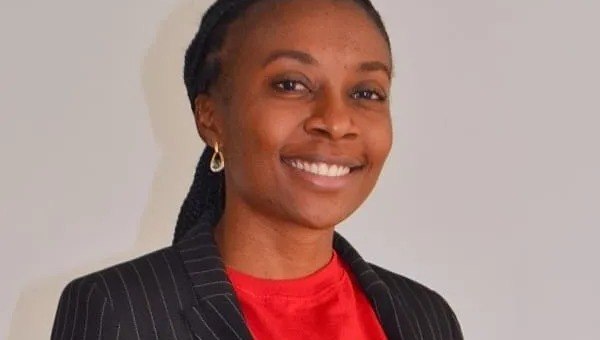Professor Ieva Jākobsone Bellomi Moderates Panel for Italy Africa Business Week
On October 9, 2021, JCU Business Professor, Ieva Jākobsone Bellomi, moderated a panel discussion on the newly operational Africa Continental Free Trade Area for the 5th edition of Italy Africa Business Week (IABW). The IABW international conference is an important forum for both African and Italian politicians, government officials, entrepreneurs, and academics to foster lasting partnerships.

Professor Ieva Jākobsone Bellomi
The panel consisted of H.E. Albertus Aochamub, Namibian Ambassador to Italy, H.E. Fabrizio Lobasso, Sub-Saharan Africa Director at the Ministry of Foreign Affairs of Italy, Mr. Abramo Abderrahmane Chabib, CEO, Director of Italian Diplomatic Academy, Ms. Federica Bruni, BusinessMed Coordinator, Mr. Federico Bega, Chief Strategy Officer, Promos Italia Scrl and Mrs. Margherita Trestini, Marketing Director of Prototipi Ltd, in Lagos, Nigeria.
The African Continental Free Trade Area (AfCFTA) was established in Kigali, Rwanda in March of 2018 and went into effect in May of 2019. Symbolic trading under the AfCFTA began on January 1, 2021, bringing together 54 signatory countries and 41 ratifying countries across the African continent. AfCFTA represents the largest trading market in terms of participating countries, uniting 1.3 billion people with a combined GDP of $3.4 trillion.
The free trade agreement aims to facilitate the free movement of goods and services between participating countries with the elimination of 90% of trade tariffs, as well as the free movement of businesspeople. Establishing uniform border tariffs across the continent is one of the greatest impediments to building up economies of scale and scope for African small and mid-size enterprises (SMEs). This is of utmost importance if the AfCFTA wants to bring informal trading into the formal economy and raise the wages and living standards of the most vulnerable economic groups. For example, as an economic group, women constitute 70% of informal traders on the continent.
Ultimately, the African common market is working towards reducing the importance of raw material exports in the African countries’ economies and increasing the importance of trading natural resources and commodities across the continent. This would contribute to the development of value and supply chains as well as diversify the economies of the continent. For example, currently, intra-continental trade in Africa stands at 15%. In comparison, the United States is at 50%, the European Union is at 60%, and Asia is at 70%.
Participants in the panel also discussed the challenges of implementing AfCFTA, since Africa is a fragmented continent with different economic, political, and social developmental levels among countries. Both internal competition and protectionism should be considered when rolling out the second phase of AfCFTA, which will focus on competition, intellectual property issues, and investment. Professor Jākobsone took the opportunity to remind the audience of the African Development Bank President’s recent message to the United States during his visit to Washington DC: “If you do not invest in Africa, where else do you invest?”
Professor Jākobsone concluded by asking the audience not to see AfCFTA as the next China since the historic, political, and economic perspectives of the two global players are different. Rather, she asked them to consider this great economic integration initiative as an African-specific one rooted in a traditional value of ubuntu: “I am because we are.” If the initiative succeeds, the consolidation of the natural and economic power of the continent would be for the benefit of the vast majority of Africans.





